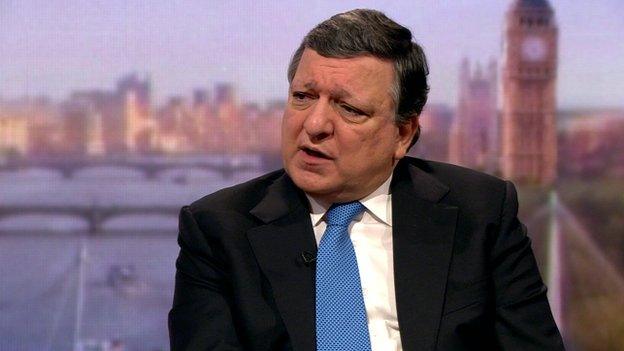UK to seek immigration changes despite Merkel EU 'warning'
- Published
- comments
Osborne: "David Cameron and the Conservative Party always put Britain's national interest first"
Chancellor George Osborne has insisted the UK will pursue its "national interest" in Europe despite German warnings about its future in the EU.
Mr Osborne said the British people wanted concerns about EU immigration and access to benefits addressed.
The German government has insisted the right of EU nationals to live and work in other member states is sacrosanct.
Angela Merkel has reportedly said she fears for the UK's future in Europe amid its calls for more migrant curbs.
The BBC's Europe Editor Gavin Hewitt said the German chancellor wanted the UK to stay in.
But he said an article in Der Spiegel news magazine, which quoted German government sources as saying she feared the UK was near a "point of no return", signalled Berlin's view that British calls for curbs on the free movement of people was a "red line" that could not be crossed.
'No return'
David Cameron wants to renegotiate the terms of the UK's continued membership before holding an in-out referendum, if he remains in power after next year's general election.
The prime minister, who is expected to set out his next steps on immigration before Christmas, has insisted freedom of movement of workers would be "at the very heart" of his renegotiation strategy.

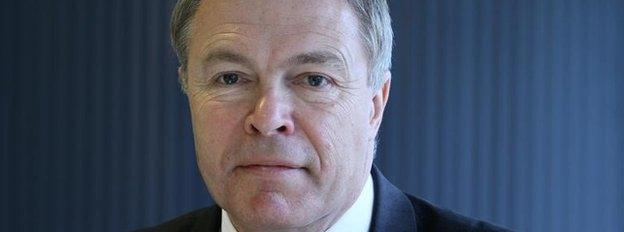
Analysis by Europe Editor Gavin Hewitt
The suggestion that Angela Merkel would rather see Britain leave the EU than accede to changes to the EU's freedom of movement principle has raised political temperatures in the UK.
Within the political establishment in Berlin there is increasing frustration with the UK. They do not know what David Cameron wants and are increasingly sensitive to demands that appear to be endlessly changing.
In particular the Germans are alarmed by the suggestion of "caps" or "quotas" or "emergency brakes" on the numbers of EU migrants arriving in Britain. They believe that would undermine freedom of movement, a core EU principle.
At the European summit on 25 October, Angela Merkel was asked about a possible UK move to change the treaties to reduce the number of migrants.
"We have the basic principle of free movement," the German chancellor said. "We won't meddle with that." It was her way of saying free movement was not up for negotiation.

But Mrs Merkel is said by the magazine to have expressed concerns to David Cameron last week about migration reforms which require fundamental changes to the principles of the organisation.
According to the Sunday Times, external, Germany has already rejected a proposal to impose quotas on low-skilled EU migrants by limiting the national insurance numbers issued to them.
Der Spiegel, quoting sources within the German chancellor's office and German foreign ministry, said Mrs Merkel had now acknowledged for the first time that the UK's exit from the EU was possible.
"Should Cameron persist (in this quota plan), Chancellor Angela Merkel would abandon her efforts to keep Britain in the EU," it quoted the sources as saying.
"With that a point of no return would be reached. That would be it then."
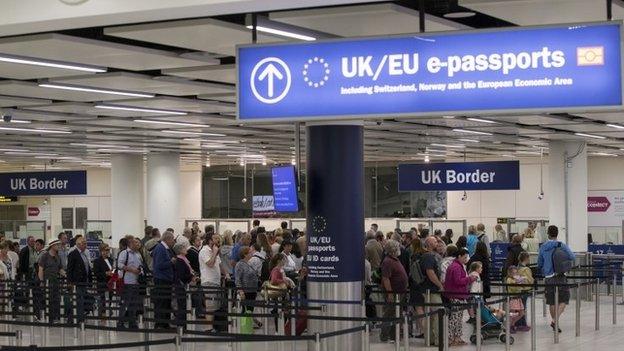
David Cameron is set to miss his target of cutting net migration to 100,000 a year by next May
Der Spiegel reported that Mr Cameron was now looking at a plan to stretch the EU rules "to their limits" in order to ban migrants who do not have a job, and to deport those who are unable to support themselves after three months.
Speaking to journalists on Monday, Mrs Merkel's spokesman - Steffen Seibert - said this was "not a bilateral matter between Germany and Britain but between Britain and all of its European partners".
It was up to the UK to "clarify" what wider role it wanted to play in the EU, he added.
Mr Osborne said a Conservative government would always "do what is in the interest of our country and our economy" but the UK would approach future negotiations in a "calm and rational" way.
Tory backbencher David Davis: Merkel's warning is "bloodcurdling"
"What we have today is a story based on speculation about what Angela Merkel might have said about something David Cameron might say in the future," he told BBC Breakfast.
"The Germans understand the disquiet caused among the British people when you have people coming from other parts of Europe to claim our benefits who do not necessarily have jobs to go to."
'No bluff'
Downing Street said Mr Cameron believed there should not be an "unqualified right" to freedom of movement and the existing rules must be put on a "more sensible basis".
"The point we are making is that when the founding fathers established the EU, it was about labour, how you integrate countries in the single market," a No 10 spokesman said.
"The mass migration that you have seen with new countries joining, the impact on other populations including in the UK, the free movement in order to claim benefits, these are areas that have evolved and we think they need to be addressed."
UKIP leader Nigel Farage said he took the German warning seriously, saying that their "politicians do not bluff" and it was not possible to have an "a la carte menu" in Europe.
"David Cameron will fiddle around the edges and end up satisfying nobody," he told the BBC.
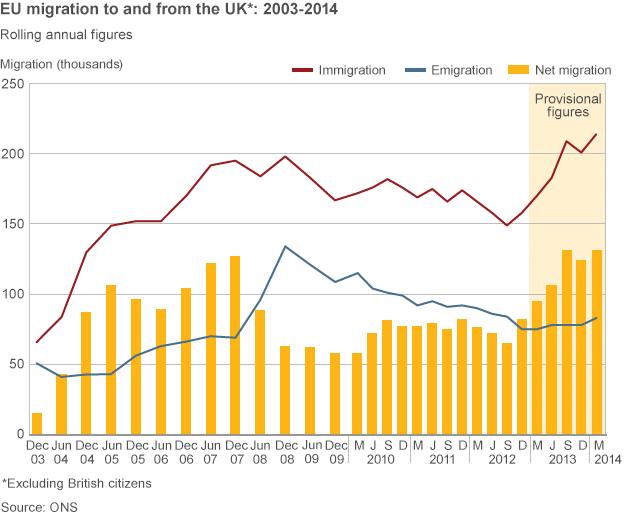
And Labour said Mr Cameron was "losing allies and influence" in Europe.
"His weakness within his own party means he now risks pushing Britain towards exit from Europe altogether," said shadow foreign secretary Douglas Alexander.
The BBC's political editor Nick Robinson said the Der Spiegel article should be seen as part of Germany's "negotiating strategy" ahead of future discussions among all 28 member states, which are unlikely to conclude until 2016 at the earliest.
The UK's dilemma, he said, was that a dynamic, growing British economy was always likely to result in a certain level of immigration from the EU, particularly if the UK did not insist on migrants having to make more tax contributions before getting child benefits and tax credits.
Thinktank Open Europe, external is calling for all new EU migrants to be excluded from being able to claim in-work and out-of-work benefits for three years after arriving in other member states.
'In a flap'
Work and Pensions Secretary Iain Duncan Smith told the BBC there was a "remarkable degree of agreement" across Europe behind the principle of restricting benefits for new arrivals, although no time limit had been decided yet.
Deputy Prime Minister and leader of the pro-European Liberal Democrats, Nick Clegg, said the Conservatives were "in a flap" about the issue ahead of the Rochester and Strood by-election on 20 November, where they are being challenged by UKIP.
"The fact is that the Conservative Party are now in such panic about UKIP that they are actually prepared to jeopardise Britain's place as a leading nation in Europe," he told BBC Radio Oxford.
Separately, it has emerged that the UK could be liable for interest payments worth £114,247 a day from 1 December on a £1.7bn top-up payment demanded by Brussels.
If the UK didn't pay anything for a full year, the daily interest rate on the outstanding sum would rise to £244,520 per day or more than £1m a week.
But a Treasury source told the BBC there may not be any interest paid at all since EU finance ministers may agree this Friday - or at a later meeting - to alter not just the total owed by the UK but also the process under which interest is levied.
David Cameron has said the UK will not meet next month's payment deadline and has no intention of paying the full amount at all.
- Published3 November 2014
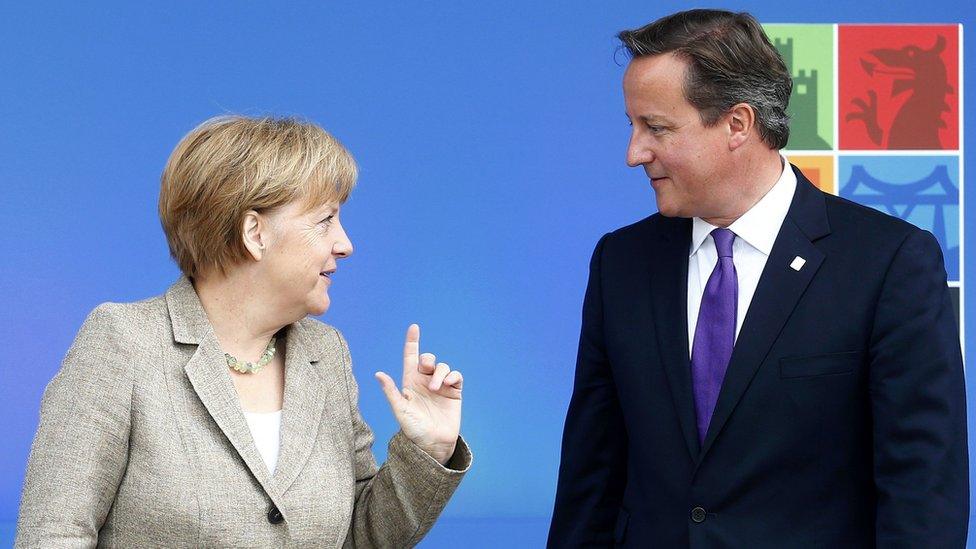
- Published3 November 2014
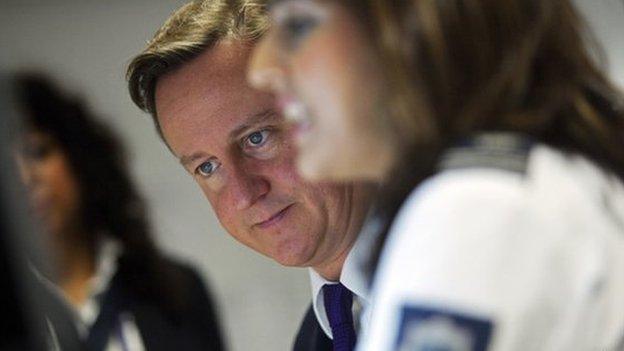
- Published16 October 2014
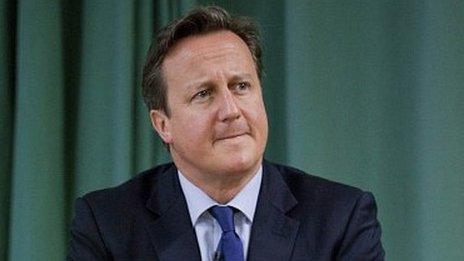
- Published22 October 2014
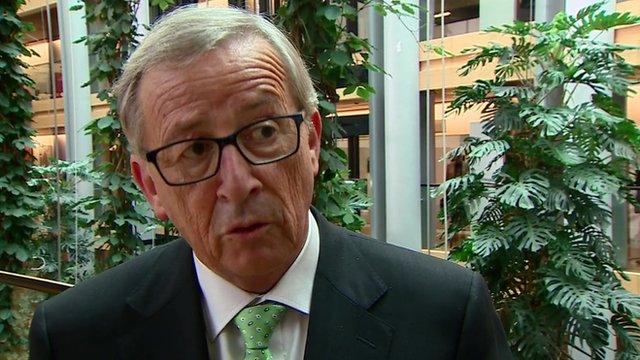
- Published19 October 2014
